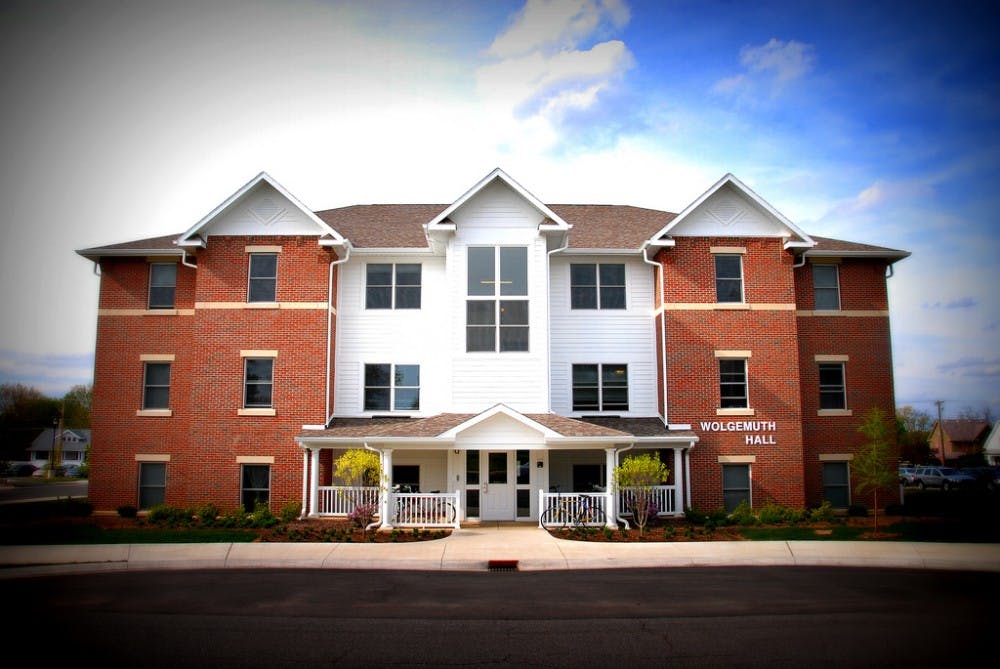By Ally Horine | Contributor
Taylor has faced issues with off-campus housing policies for much of the past year. With the demolition of Fairlane and the addition of Breuninger, more students are being required to live in residence halls now than in previous years-and many seeking to move off-campus are unhappy with this decision.
"It was really hard to see all of my other close friends off-campus and enjoying it so much," Skerratt said. "I had to choose to make the best of my situation (in Olson) first semester, and we did, but it was definitely a challenge."
The process has not changed from year to year, according to Residence Life Housing Coordinator Lori Slater. Each February, eligible juniors and seniors may apply to live in university-owned apartments or in the local community. To apply for an apartment, students form groups of four or five and average their total credit hours. The groups with the 38 highest averages get into the available apartments.
But what happens to everyone else?
Those who don't get into a university apartment can apply to live off-campus, but there is no guarantee they will get approval, according to Slater. Since the demolition of Fairlane, Taylor has not made any new additions to the amount of students approved. The numbers of students who get to move off-campus depends upon enrollment numbers by class.
According to the university handbook, off-campus housing not owned by Taylor is considered overflow housing and is only granted to students who meet certain individual requirements. Those requirements change from year to year, and are based on incoming enrollment.
The result is that more incoming freshmen means more seniors approved.
"We try to be fair in our selection process, and we feel credit hours is the fairest way to evaluate those moving off," said Jon Cavanagh, director of university apartments. "We are a residential campus, however, and our mission is to have most of campus living on so we can cultivate a formational community."
With the addition of Breuninger, Taylor now has more beds to fill before they can start allowing seniors to move into off-campus houses. This has made moving off more competitive. Last year, the lowest credit hour value to be approved was 100 credits for female applicants and 93.5 for males.
Currently, the only people who are automatically approved to move off campus are married students, student teachers, those doing social work practicums and those over the age of 25. Last year an initiative was proposed to have 90 percent of the student body living in University housing. This is very different from many other universities who allow students to move off after their freshman year.
"I think seniors have the expertise in this community," Cavanagh said. "They can make a maximum impact on the underclassmen with minimal effort. A lot of them have extra free time in their schedule that they can spend an hour or two a week on the wing with freshmen."
While some seniors choose to stay on their wing, many feel ready to move off by the end of their junior year.
D'Andre Coats, former student and current Swallow Robin Hall director, has fond memories of being able to live off-campus.
"I loved the aspect of getting to connect with people who I didn't know prior to living off campus," Coats said. "It was very refreshing to connect with other seniors and enjoy the new community in which I was a part of."
Many seniors look forward to this experience and often come in with the expectation that they will be able to move off.
"I think many seniors feel it is a rite of passage for them," Cavanagh said. "While it is valuable, we do not always get what we want."
While it may not be a rite of passage, some argue it is a good transition into postgraduate life.
"Living in that space forced my roommates and me to have good conversations about boundaries, helped us learn about compromise and actually made us more intentional with each other during that time," Coats said.
Despite Skerratt's initial frustration, she has come to peace with the University's decision.
"Last year was difficult for me and my friends," Skerratt said. "I respect the university and I understand their policy. It's unfortunate in some aspects, but I think it is a hard process to do the 'fair' way. And nothing is usually very fair in life."
If enrollment consistently increases, the university will consider plans for adjusting university and off-campus housing. However, there are currently no plans for new university apartments.
(Thumbnail photograph courtesy of Jim Garringer.)



